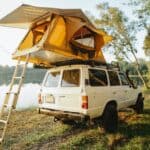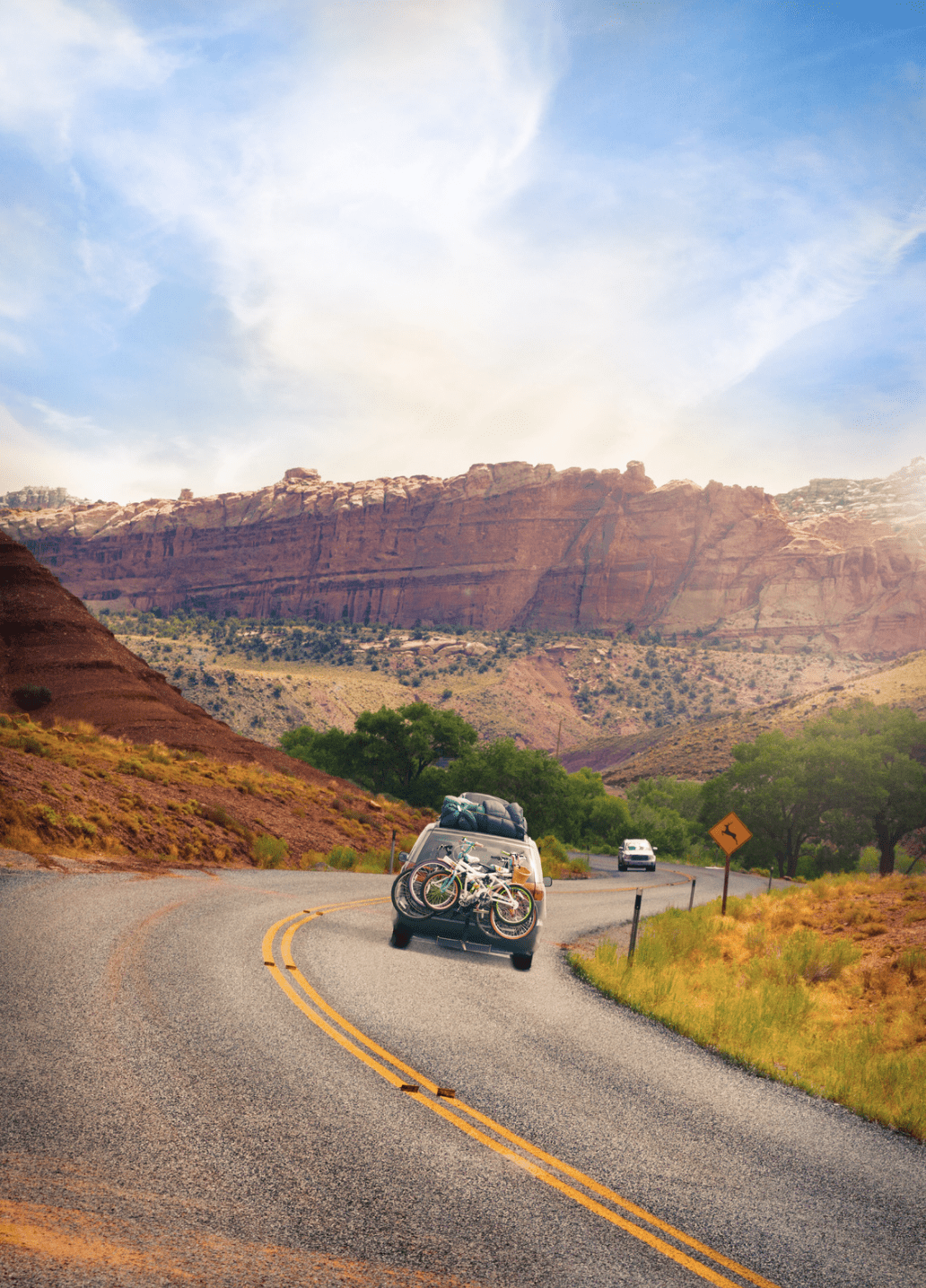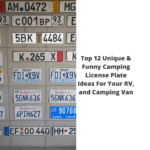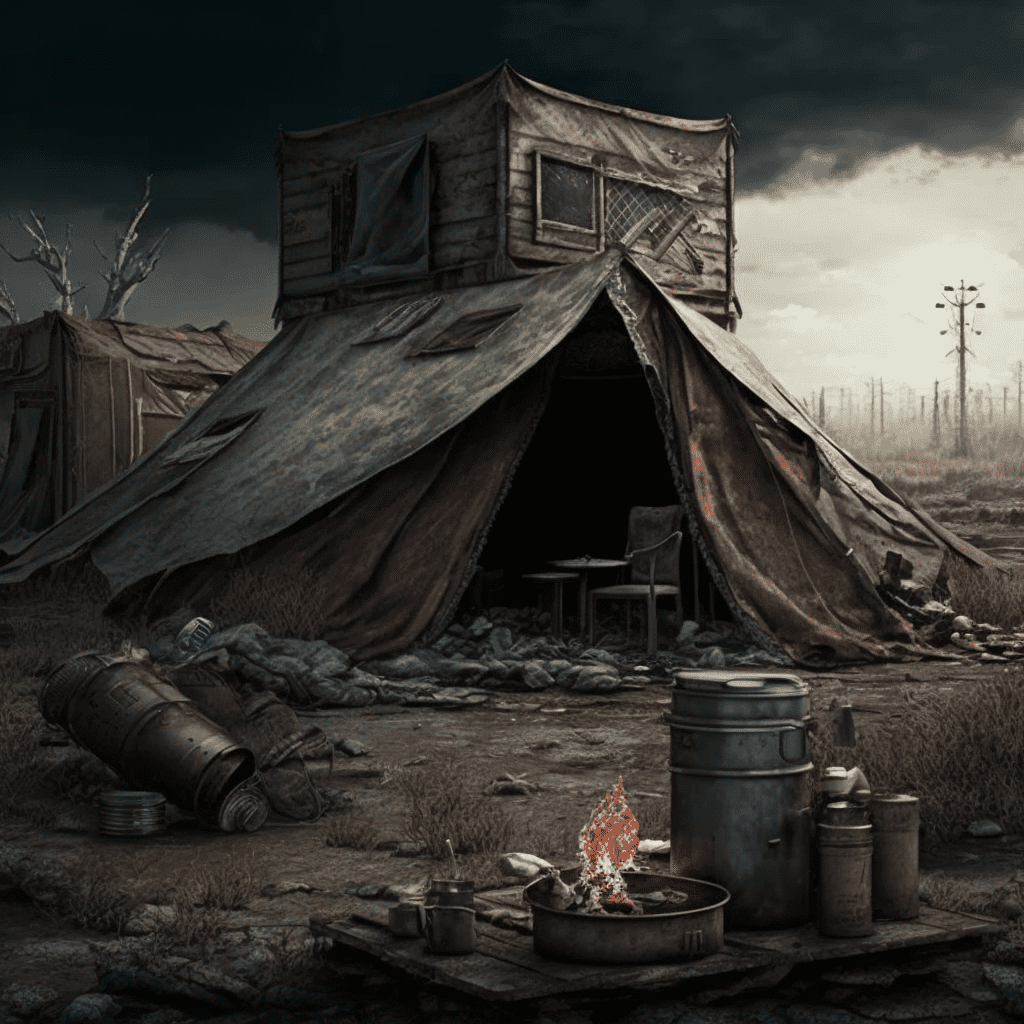Beginners Guides
How Much Is A Camper
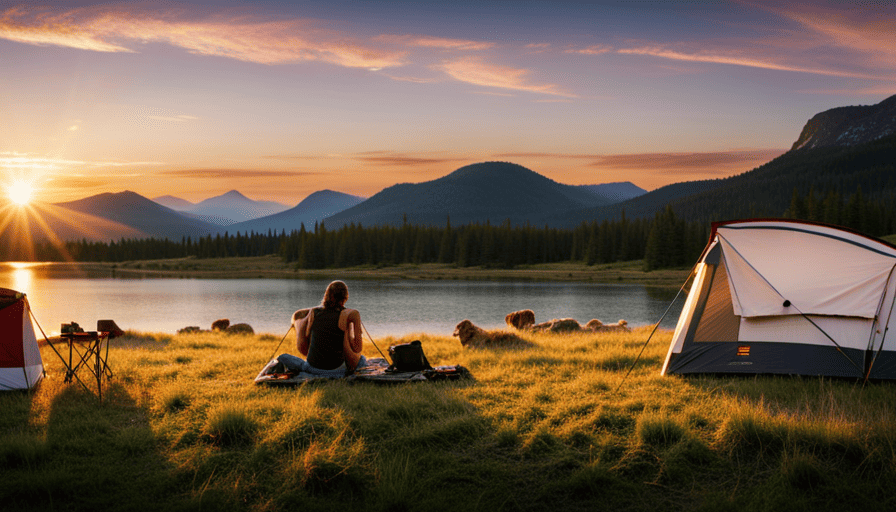
I remember the moment I first laid eyes on a camper. The sun was shining brightly on a warm summer day as my family and I traveled through the rural scenery. Passing by a camping site, I noticed a group of people gathered around a vibrant blue camper. It looked like a small, portable home with a cozy interior. I couldn’t help but wonder about the cost of owning such a camper.
If you’re like me and have been captivated by the allure of camper life, you’re probably curious about the price tag attached to these mobile homes. Well, you’ve come to the right place. In this article, we’ll explore the world of campers and dive into the factors that determine their prices. From the different types of campers available to the additional costs you need to consider, we’ll cover it all.
Whether you’re dreaming of embarking on a cross-country road trip or simply looking for a cozy weekend getaway, understanding the cost of campers is essential. So, let’s hit the road and discover just how much a camper can set you back.
Key Takeaways
- There is a wide range of camper types and prices available, including affordable options like pop-up campers and teardrop trailers, as well as more spacious options like travel trailers and fifth wheels.
- Factors such as size, age, condition, and additional features can affect the price of a camper, as well as the brand and manufacturer reputation.
- Buying new campers allows for the latest features and warranties but comes with a higher cost and depreciation, while buying used campers can be more affordable but may require repairs and have hidden costs.
- Thorough research, inspection, and consideration are necessary when buying a used camper, including assessing its condition, researching market value, and looking for signs of damage or wear. Additionally, it’s important to budget for maintenance and repair costs, as well as insurance and financing options.
Types of Campers and Their Price Range
When it comes to campers, there’s a wide range of types and prices to choose from. From small travel trailers to luxurious motorhomes, there is an RV type for every budget and preference. Popular camper brands like Airstream, Winnebago, and Forest River offer a variety of models that cater to different needs and lifestyles.
At the lower end of the price range, you have pop-up campers and teardrop trailers. These compact options are lightweight and affordable, making them a great choice for those who’re just starting their camping adventures.
Moving up the scale, you have travel trailers and fifth wheels. These offer more space and amenities, such as kitchens, bathrooms, and sleeping areas. They’re perfect for families or those who prefer a bit more comfort while on the road.
If you’re looking for the ultimate camping experience, motorhomes are the way to go. Class A, B, and C motorhomes come with all the bells and whistles, including full kitchens, bathrooms, and even slide-outs for extra space. However, keep in mind that these luxurious options come with a higher price tag.
Factors that affect camper prices include the size, age, condition, and additional features of the camper. By considering these factors, you can find the camper that fits your needs and budget seamlessly.
Factors That Affect Camper Prices
When it comes to camper prices, there are several factors that come into play. One of the key factors is the brand and manufacturer of the camper. Different brands and manufacturers have different reputations and quality standards, which can greatly impact the price.
Another factor to consider is the size and floor plan of the camper. Larger campers with more spacious floor plans tend to be more expensive than smaller ones.
Lastly, the features and amenities of the camper also play a role in determining its price. Campers with more high-end features and luxurious amenities will generally have a higher price tag.
Additionally, the age and condition of the camper can also affect its price. Newer campers in excellent condition will typically be priced higher than older campers in need of repairs.
Brand and Manufacturer
Looking for a camper that suits your needs? Have you considered which brand and manufacturer offer the best options for you?
When determining the price of a camper, it’s important to take into account the brand and manufacturer. Some brands have a reputation for producing high-quality campers that are built to last, while others may have a less favorable reputation. It’s a good idea to research customer reviews and ratings to get an idea of the overall satisfaction with a particular brand.
Keep in mind that a well-known brand with a positive reputation may come with a higher price tag.
In the next section about size and floor plan, we will explore how these factors can also impact the price of a camper.
Size and Floor Plan
To find the perfect camper for you, consider the size and floor plan that best suits your needs and preferences.
The size of the camper is an important factor to consider, as it will determine how much space you have for living and storage. Smaller campers are more compact and easier to maneuver, but they may have limited living space. On the other hand, larger campers offer more room for amenities and comfort, but can be more challenging to tow and park.
Additionally, the floor plan of the camper plays a crucial role in determining the layout and functionality of the living space. Different floor plans offer various arrangements of sleeping areas, kitchenettes, dining spaces, and bathrooms.
By carefully considering camper size and floor plans, you can ensure that your camper meets your specific needs and preferences.
Now, let’s explore the features and amenities that can enhance your camping experience.
Features and Amenities
You’ll love the features and amenities that can enhance your camping experience. Imagine sitting around the crackling fire, roasting marshmallows, and enjoying the warmth as you share stories with your family and friends. A cozy fireplace is available to gather around on chilly nights. There is also a spacious outdoor kitchen for cooking delicious meals under the stars.
Renting an RV allows you to experience the perks of camping without the commitment of owning a camper. It’s a cost-effective option for those who only camp occasionally or want to try out different models.
Campgrounds and RV Parks offer a range of amenities, such as swimming pools, playgrounds, and hiking trails. Many campgrounds and RV parks provide hookups for water, electricity, and sewage, making your stay more comfortable.
When considering your camper’s features and amenities, don’t forget to take into account the age and condition of the vehicle you’re interested in.
Age and Condition
When considering the features and amenities of a camper, it’s also important to take into account its age and condition, as these factors can greatly impact the price.
A newer camper in excellent condition will likely come with a higher price tag, while an older camper in poor condition may be more affordable. However, it’s crucial to remember that age and condition aren’t the only factors that determine a camper’s value.
Many older campers have been well-maintained and can still provide years of enjoyment. On the other hand, a newer camper may have been neglected and require costly repairs. Therefore, it’s essential to thoroughly inspect any camper you’re considering purchasing, regardless of its age.
Now, let’s explore the pros and cons of buying new versus used campers.
New vs. Used Campers
When it comes to buying a camper, there are pros and cons to both buying new and buying used. Buying new allows you to have the latest features and warranties, but it can also be more expensive.
On the other hand, buying used can save you money, but you may have to deal with potential wear and tear. If you decide to buy a used camper, some tips include conducting a thorough inspection, checking the vehicle history, and negotiating the price.
Pros and Cons of Buying New
Although there are advantages to purchasing a new camper, there are also drawbacks to consider. When buying new, you get the benefit of having the latest features and technology, as well as the peace of mind that comes with a warranty. Additionally, you can customize the camper to your liking and have the satisfaction of being the first owner. However, there are some disadvantages as well. The cost of a new camper is significantly higher than a used one, and it depreciates quickly as soon as you drive it off the lot. Maintenance and insurance costs may also be higher. Furthermore, the selection of new campers may be limited compared to the used market. Despite these drawbacks, many people still prefer to buy new for the added benefits and peace of mind. Moving on to the next section, let’s explore the pros and cons of buying used.
Pros and Cons of Buying Used
After exploring the pros and cons of buying new campers, let’s now delve into the advantages and disadvantages of buying used ones.
As someone who’s had experience with purchasing a used camper, I understand the importance of thorough research and careful consideration.
One major benefit of buying used is the potential for a lower price tag, making it a more affordable option for budget-conscious buyers. However, it’s crucial to keep in mind that used campers may come with hidden costs, such as repairs or maintenance needs. Therefore, it’s essential to inspect the camper thoroughly and consider hiring a professional to assess its condition before finalizing the purchase.
Additionally, negotiating the price is another key aspect of buying a used camper, and I’ll provide you with valuable tips for successful negotiations in the subsequent section.
Tips for Buying a Used Camper
One thing to keep in mind when buying a used camper is that you don’t want to end up with a lemon. To avoid this, there are a couple of important steps to take.
Firstly, negotiating the price is crucial when purchasing a used camper. Do your research on the market value of similar campers and use that information to your advantage. Don’t be afraid to haggle and ask for a lower price.
Secondly, inspecting for hidden damages is essential. Take your time to thoroughly examine the camper, both inside and out. Look for any signs of water damage, structural issues, or worn-out components. It’s also a good idea to bring along a trusted mechanic or RV specialist to help identify any potential problems.
By being diligent in these areas, you can ensure that you’re getting a fair deal and a camper that’s in good condition. It’s important to consider these factors when buying a used camper, as they can save you from unexpected expenses down the road.
Additional Costs to Consider
When you’re budgeting for a camper, don’t forget to factor in the additional costs that you’ll need to consider. In addition to the purchase price of the camper itself, there are hidden fees and maintenance costs that can quickly add up.
One of the hidden fees to be aware of is the cost of insurance. Just like with a car, you’ll need to insure your camper to protect it from accidents, theft, and damage. The insurance premium will vary depending on factors such as the value of the camper and your driving history.
Maintenance costs are another important consideration. Campers require regular upkeep to ensure they are in good working condition. This includes routine maintenance such as oil changes, tire rotations, and inspections. In addition, there may be unexpected repairs that arise over time. It’s a good idea to set aside a portion of your budget for these maintenance and repair costs.
Now that you have a better understanding of the additional costs associated with owning a camper, you can plan your budget more effectively. In the next section, we will explore financing options for camper purchases, which can help you manage these costs in a way that fits your financial situation.
Financing Options for Camper Purchases
Looking for a way to make your dream of owning a camper a reality? Have you considered the different financing options available to you?
When it comes to purchasing a camper, there are a few options to consider. One popular choice is to take out an RV loan. These loans are specifically designed for financing the purchase of recreational vehicles, such as campers. RV loans typically offer competitive interest rates and flexible repayment terms, making them an attractive option for many buyers.
Another financing option to consider is leasing. Leasing allows you to enjoy the benefits of a camper without the commitment of ownership. With a lease, you essentially rent the camper for a set period of time, usually a few years. This can be a good option if you’re not ready to commit to owning a camper or if you prefer to have the flexibility to upgrade to a newer model in the future.
When shopping for a camper, it’s important to consider your financing options. Whether you choose to take out an RV loan or explore leasing options, understanding the different financing choices available to you can help make your dream of owning a camper a reality.
Shopping for a Camper
Now that we’ve discussed the various financing options for purchasing a camper, let’s move on to the exciting part: shopping for one! As someone who loves outdoor adventures, I can tell you that finding the perfect camper is like finding a home on wheels.
When it comes to shopping for a camper, it’s important to consider your budget options. Camper prices can vary greatly, so it’s essential to have a clear idea of how much you’re willing to spend. Whether you’re looking for a brand new camper or a used one, there are options available for every budget.
Timing is also crucial when shopping for a camper. The best time to buy is typically during the off-season, such as winter or early spring, when dealerships are more likely to offer discounts and promotions. However, keep in mind that inventory might be limited during this time, so it’s important to start your search early.
To help you visualize the camper shopping experience, here’s a markdown bullet list:
- Picture yourself browsing through a wide range of campers, from compact trailers to luxurious motorhomes.
- Imagine stepping inside and exploring the cozy living spaces, complete with comfy beds, kitchenettes, and even bathrooms.
- Envision envisioning yourself hitting the open road, ready for your next adventure with your perfect camper in tow.
Remember, finding the right camper takes time and research, but with a clear budget and timing in mind, you’ll be well on your way to finding your dream home on wheels.
Frequently Asked Questions
What are some popular camper brands and models to consider?
When looking for popular camper brands and models to consider, there are several options available.
Some well-known brands include Airstream, Winnebago, and Jayco. These brands offer a range of camper models that cater to different needs and preferences.
For example, Airstream is known for its iconic silver bullet trailers, while Winnebago offers a variety of motorhomes. Jayco is popular for its lightweight and affordable camper options.
Overall, these brands provide reliable and high-quality choices for camping enthusiasts.
Are there any restrictions or regulations on where you can park or camp with a camper?
There are indeed parking restrictions and camping regulations that you need to be aware of when traveling with a camper. Different cities and states have their own rules regarding where you can park or camp with a camper.
Some areas may have designated campgrounds or RV parks where you’re allowed to stay, while others may have restrictions on parking overnight in certain areas. It’s essential to research and familiarize yourself with the specific regulations of the locations you plan to visit.
What are some important features to look for when shopping for a camper?
When shopping for a camper, it’s crucial to consider important features that suit your needs. Look for a camper with ample storage space, comfortable sleeping arrangements, and a functional kitchen area.
Additionally, make sure it has good insulation and ventilation for various weather conditions. As for the price range, campers can range from around $10,000 for basic models to over $100,000 for luxury options.
Now, let’s dive into the fascinating statistic that’ll make your camper search even more exciting.
How much does it cost to maintain a camper on an annual basis?
Maintaining a camper on an annual basis can involve various costs. The cost breakdown typically includes regular maintenance expenses such as oil changes, tire replacements, and general inspections.
Additionally, there may be costs for winterizing and de-winterizing the camper, as well as storage fees if you don’t have a designated space. Other expenses could include repairs, cleaning supplies, and insurance premiums.
It’s important to budget for these ongoing expenses to ensure the longevity and enjoyment of your camper.
Are there any specific safety considerations or requirements for owning a camper?
When it comes to owning a camper, safety considerations are of utmost importance. From insurance requirements to specific safety measures, there is a lot to keep in mind.
You’ll need to ensure your camper is equipped with fire extinguishers, smoke detectors, and carbon monoxide detectors. Additionally, it’s crucial to have proper insurance coverage in case of accidents or damage.
Don’t forget to research local regulations and any additional safety requirements based on your specific camper model. Safety first!
What is the process of getting a title for a camper without one?
The process of getting a title for a camper without one can be daunting. However, it is crucial to legally register your camper if you plan to travel or sell it. Start by contacting your local Department of Motor Vehicles. They will provide you with the necessary information and paperwork required to initiate the title application process.
Conclusion
After exploring the world of campers, it’s evident that they come in various types, each with its own price range.
From compact teardrop trailers to luxurious motorhomes, the options are endless. Factors such as size, features, and brand influence the prices of campers.
Whether buying new or used, it’s important to consider additional costs like maintenance and insurance. But fear not, financing options are available to make your dream camper a reality.
So, start shopping and envision yourself cruising down the open road, embracing the freedom and adventure that awaits.
Beginners Guides
How To Mount A Tv In A Camper

Adding a TV to your RV can greatly enhance your outdoor adventures by providing entertainment and a way to relax after a day of exploring. Just like a compass guides you through unfamiliar terrain, this comprehensive guide will help you easily navigate the installation process.
With the right tools and materials at hand, you can transform your camper into a portable entertainment hub. From assessing the layout of your camper to securing loose cables and wires, every step is crucial to ensure a safe and enjoyable TV mounting experience.
Whether you’re a seasoned camper or a novice explorer, this article will walk you through each stage, empowering you to take control of your outdoor entertainment. So, grab your tools and let’s embark on a journey to mount a TV in your camper – a journey that will bring comfort and joy to your camping adventures.
Key Takeaways
- Assess the layout of the camper to find the perfect spot for mounting the TV, considering space, viewing angles, and obstructions.
- Gather the necessary tools and materials, such as a mounting bracket designed for the TV model and camper type, appropriate screws and anchors, a power drill, and a screwdriver.
- Carefully attach the mounting bracket to the wall, ensuring accurate placement by marking and drilling pilot holes before securing the bracket.
- Mount the TV onto the bracket, aligning the mounting holes and tightening the screws to securely attach the TV. Adjust the angle of the TV for optimal viewing.
Assess the Layout of Your Camper
Take a moment to assess the layout of your camper and envision the perfect spot to mount your TV for the ultimate entertainment experience on the road.
Start by assessing the available space in your camper. Look for a wall or surface that can accommodate the size and weight of your TV. Consider the viewing angles and make sure the spot you choose allows for comfortable viewing from different areas in the camper.
Additionally, take into account any obstructions such as windows, cabinets, or appliances that may affect the visibility of the TV.
Optimizing the layout is crucial for a successful TV mount installation. Consider the height at which you want the TV to be mounted. It should be at eye level when seated in the typical viewing area. Take measurements to ensure the TV will fit in the chosen spot and that there is enough clearance for any necessary cables or connections.
Once you have assessed the space and optimized the layout, it’s time to gather the necessary tools and materials for the installation.
Gather the Necessary Tools and Materials
To successfully mount a TV in your camper, you’ll need a few essential tools and materials.
First, you’ll need a mounting bracket specifically designed for your TV model and camper type. This bracket will ensure a secure and stable installation.
Next, you’ll need screws and anchors suitable for the type of wall or surface you’ll be mounting the TV on. These will provide the necessary support and prevent the TV from falling.
Lastly, a power drill and screwdriver will be required to attach the bracket and screws securely. These tools will allow you to drill pilot holes and tighten the screws effectively for a professional-looking installation.
Mounting Bracket
Grab a cold one and let me show you how easy it is to slap that TV on a mounting bracket in your camper! When it comes to the mounting bracket, you have a few options to choose from. Take a look at the table below to compare the different options based on their weight capacity and features:
| Bracket Type | Weight Capacity | Features |
|---|---|---|
| Fixed | Up to 100 lbs | Simple and sturdy design |
| Tilting | Up to 75 lbs | Allows for vertical adjustment |
| Full Motion | Up to 50 lbs | Provides full range of motion |
Now that you have an idea of the different mounting options, you can choose the one that best suits your needs. Once you’ve selected the bracket, we can move on to the next step of securing it to the wall using screws and anchors.
Screws and Anchors
Now let me walk you through how easily you can secure the mounting bracket to the wall using screws and anchors.
When it comes to screws and anchors, there are a few alternatives you can consider. For lightweight TVs, you can use plastic anchors and screws that are specifically designed for drywall. These are easy to install and provide sufficient support. However, for heavier TVs, it’s recommended to use toggle bolts or molly bolts, which offer better weight-bearing capacity.
Before deciding on the type of screw and anchor to use, make sure to consider the weight of your TV to ensure proper support. Once you’ve selected the appropriate screws and anchors, you can proceed to attach the mounting bracket to the wall.
Now, let’s move on to the next step, which involves using a power drill and screwdriver.
Power Drill and Screwdriver
Using a power drill and screwdriver is a piece of cake when it comes to securing the mounting bracket to the wall. However, before using any power tool, it is crucial to prioritize power drill safety. Always wear safety goggles and gloves to protect yourself from flying debris. Additionally, make sure the power drill is in good condition and the battery is fully charged. Now, let’s talk about choosing the right screws for the job. For mounting a TV in a camper, it’s important to use screws that are long enough to securely hold the weight of the TV and mounting bracket. Look for screws that are at least 2 inches in length and have a diameter that matches the mounting holes on the bracket. This will ensure a strong and secure installation. Moving on to the next step, let’s install the mounting bracket securely onto the wall.
Install the Mounting Bracket
To install the mounting bracket, the first step is to mark the drill holes on the wall where the bracket will be attached. Use a level to ensure the bracket will be straight.
Next, drill pilot holes into the marked spots to make it easier to screw in the mounting screws.
Finally, attach the bracket to the wall by aligning the drilled holes with the mounting screws and tightening them securely.
Mark the Drill Holes
First things first, let’s grab our marker and carefully mark the drill holes for mounting the TV in your camper. To ensure accurate placement, it’s crucial to use proper drilling techniques and precise measurements. Here’s a step-by-step guide to marking the drill holes:
| Step | Instructions |
|---|---|
| 1 | Measure and mark the desired height for your TV mount on the wall. |
| 2 | Use a level to ensure the mark is straight and aligned with your viewing preference. |
| 3 | Locate the studs behind the wall using a stud finder and mark their positions. |
| 4 | Determine the spacing between the mounting holes on the TV bracket and mark them accordingly. |
By carefully following these steps, you’ll have the drill holes accurately marked for mounting your TV. Now, let’s move on to the next section and learn how to drill pilot holes for a secure installation.
Drill Pilot Holes
Before drilling pilot holes, make sure to properly mark the drill holes on the wall. This ensures accuracy and prevents any mistakes during the mounting process. Now, let’s move on to drilling pilot holes.
-
Begin by preparing the wall surface where you’ll be mounting the TV bracket. Clean the area and remove any dust or debris.
-
Choose the right screws for your camper wall. Make sure they’re suitable for the type of wall material and capable of supporting the weight of your TV.
-
Hold the bracket against the marked drill holes and align it properly.
-
Using a drill bit slightly smaller than the screws, carefully drill pilot holes at the marked spots. Be cautious not to drill too deep or damage the wall.
With the pilot holes drilled, we’re now ready to attach the bracket to the wall securely.
Attach the Bracket to the Wall
Once you’ve successfully drilled the pilot holes, it’s time to securely attach the bracket to the wall, giving your TV a sturdy and reliable foundation.
Before you begin, make sure you’ve chosen the appropriate mounting option for your camper. There are various types of TV brackets available, such as fixed, tilting, or full-motion brackets. Consider the weight capacity of the bracket and ensure it can support the weight of your TV.
Start by holding the bracket against the wall in the desired position. Use a level to make sure it’s perfectly straight. Mark the screw hole locations with a pencil.
Next, use the appropriate screws and a screwdriver or drill to secure the bracket to the wall. Make sure the screws are tight and the bracket is securely attached.
Now that the bracket is in place, you’re ready to mount the TV onto it, which we’ll discuss in the next section.
Mount the TV onto the Bracket
To securely attach the TV to the bracket, you’ll need to carefully align the mounting holes with the corresponding slots on the back of the TV. Start by placing the TV face down on a soft surface to avoid scratching the screen.
Locate the mounting holes on the back of the TV and align them with the holes on the bracket. Insert the screws into the holes and tighten them using a screwdriver. Make sure the screws are secured tightly to ensure the TV stays in place.
Once the TV is mounted onto the bracket, you can adjust the screen angle to your desired position. Most brackets allow for tilting and swiveling, so you can achieve the optimal viewing angle. Use the adjustment knobs or levers on the bracket to make these adjustments. Take your time to find the perfect angle that suits your needs.
In addition to mounting the TV, it’s important to consider cable management techniques. Start by routing the cables through the cable management clips or channels on the bracket. This will help keep the cables organized and prevent them from tangling or getting in the way. Use zip ties or cable wraps to secure the cables in place.
With the TV securely mounted and the cables managed, you can now move on to connecting the cables and power source. This step will ensure that your TV is ready for use in your camper.
Connect the Cables and Power Source
To connect the cables and power source for your mounted TV in a camper, first, locate the HDMI and audio cables.
Connect one end of the HDMI cable to the HDMI port on the TV and the other end to the HDMI port on your media device.
Next, connect the audio cables from the media device to the audio input on the TV.
Finally, plug in the power cord for the TV into a nearby power outlet or use an extension cord if necessary.
Ensure all connections are secure before powering on the TV.
HDMI and Audio Cables
Make sure you have the right HDMI and audio cables for your camper TV setup, so you can enjoy your favorite shows and movies on the road!
When it comes to HDMI cable management, it’s important to choose a cable that is long enough to reach from your TV to the source device, such as a DVD player or streaming device. Measure the distance and select a cable with the appropriate length to avoid any tangles or strain on the cables.
In addition, consider using cable management solutions, such as cable ties or adhesive clips, to keep the cables neat and organized. Another important aspect is the audio cable length. Ensure that the audio cable is long enough to connect your TV to any external speakers or sound systems in your camper.
With the right cables and proper cable management, you can create a seamless entertainment experience in your camper.
Now, let’s move on to the next step, which is connecting the power cord.
Power Cord
Now that we’ve covered HDMI and audio cables, let’s move on to the power cord for mounting a TV in a camper.
When it comes to power cord options, there are a few things to consider. First, determine the length of the cord you’ll need to reach the nearest power source. Second, decide if you want a detachable power cord or a fixed one. Detachable cords offer more flexibility, but fixed cords can be more secure.
Once you’ve chosen the right power cord, it’s important to think about cable management. Use cable clips or zip ties to keep the cord neatly secured along the wall or furniture. This will prevent any tripping hazards and give your camper a clean appearance.
With the power cord in place, we can now move on to adjusting and positioning the TV for optimal viewing.
Adjust and Position the TV
First, find the perfect spot and adjust the TV like a puzzle piece, sliding it gently into place until it fits snugly on the mount. To ensure optimal viewing experience, it’s crucial to adjust the screen brightness. Locate the brightness control on the TV or use the remote to navigate to the settings menu. Increase or decrease the brightness level according to your preference. Remember, a comfortable viewing experience is essential during long trips.
Next, position the TV at eye level for maximum comfort. This’ll prevent neck strain and provide a more enjoyable viewing experience. Adjust the mount’s height or angle until the TV is directly at eye level. Ensure that the mount is securely fastened to avoid any accidents while the camper is in motion.
Once the TV is in the perfect position, it’s time to test it and adjust the settings. Turn on the TV and navigate through the menu to fine-tune the picture and sound settings. Adjust the contrast, color, and sharpness to your liking. Don’t forget to set the sound to an appropriate level for your surroundings.
By following these steps, you can easily adjust and position the TV in your camper. Now, let’s move on to the next section and test the TV settings to ensure an optimal viewing experience.
Test the TV and Adjust Settings
To truly enhance your viewing experience, it’s time to put the TV to the test and fine-tune its settings, ensuring every detail on the screen comes to life. First, test different TV settings to find the optimal picture quality. Use the remote control to access the TV’s menu and explore options such as brightness, contrast, color, and sharpness. Adjust these settings to your preference, but keep in mind that overly vibrant colors or excessive sharpness can distort the image.
To troubleshoot common TV mounting issues, refer to the following table:
| Problem | Possible Solution |
|---|---|
| TV not turning on | Check power connection and ensure the TV is properly plugged in. Try a different outlet. |
| No sound | Ensure the TV’s volume is turned up and not muted. Check audio cables for any loose connections. |
| Poor signal reception | Adjust the antenna or consider using a signal booster. Check cable connections for any damage. |
| Picture not centered or aligned | Access the TV’s settings menu and use the remote to adjust the picture position, size, and alignment. |
Once you have tested the TV and adjusted the settings, it’s time to secure loose cables and wires to ensure a clean and organized setup.
Secure Loose Cables and Wires
Once you’ve adjusted the TV settings, take a moment to secure any loose cables and wires. This will create a neat and organized setup that resembles a well-tailored suit. Proper cable management not only enhances the visual appeal of your mounted TV but also ensures safety and prevents potential damage to the cables.
To hide the cables, start by identifying the best path to route them. Look for existing holes or channels in the walls or cabinets that can accommodate the cables. If necessary, use a stud finder to locate the studs and avoid drilling into them.
Once you have determined the path, use cable clips or adhesive cable management channels to secure the cables along this route. These clips and channels can be easily attached to the walls or furniture using screws or adhesive backing.
Make sure to leave enough slack in the cables to allow for movement of the TV or any future adjustments. Once all the cables are neatly secured, you can move on to considering additional features and accessories for your camper TV setup.
Consider Additional Features and Accessories
When considering additional features and accessories for mounting a TV in a camper, there are two key points to keep in mind: the sound system or speakers, and the TV mounting arm or bracket.
For a complete entertainment experience, it’s important to invest in a good quality sound system or speakers that can enhance the audio output of the TV.
Additionally, selecting the appropriate TV mounting arm or bracket is crucial to ensure secure and stable installation, allowing for easy adjustment and optimal viewing angles.
Sound System or Speakers
Imagine enjoying your favorite tunes on the road with a top-notch sound system or speakers in your camper! To enhance your audio experience, consider adding wireless speakers with Bluetooth connectivity. Here’s why they’re a must-have for your camper:
-
Convenience: Wireless speakers eliminate the hassle of tangled cords and allow for easy placement anywhere in your camper.
-
Versatility: With Bluetooth connectivity, you can easily connect your smartphone or other devices to the speakers, giving you access to a wide range of music options.
-
Portability: Wireless speakers are compact and lightweight, making them easy to carry and move around as needed.
Now that you have a fantastic sound system in place, it’s time to move on to the next step: choosing a TV mounting arm or bracket.
TV Mounting Arm or Bracket
Now that we have discussed the sound system or speakers for your camper, let’s move on to the next step: choosing the right TV mounting arm or bracket. When it comes to mounting your TV in a camper, there are a few options to consider. One popular choice is a full-motion TV mount, which allows you to adjust the viewing angle and position of the TV. This is especially useful if you have limited space or want to watch TV from different areas of the camper. Another option is a fixed TV mount, which securely holds the TV in place without any movement.
To help you compare these options, here is a table outlining their features:
| TV Mounting Option | Features |
|---|---|
| Full-Motion TV Mount | Adjustable viewing angle and position |
| Fixed TV Mount | Securely holds TV in place without movement |
When installing your chosen TV mount, make sure to follow the manufacturer’s instructions carefully. Ensure that the mount is securely attached to a sturdy part of the camper’s wall or ceiling. Use appropriate tools and hardware to ensure a safe and stable installation.
With the TV mounting arm or bracket in place, you’re now ready to move on to the next step: enjoying your outdoor entertainment.
Enjoy Your Outdoor Entertainment
To fully enjoy your outdoor adventures, you’ll want to mount a TV in your camper. When it comes to outdoor TV placement, it’s important to consider the weather conditions and choose weatherproof TV options.
First, you’ll need to select a suitable location for your outdoor TV. Look for a spot that provides a clear view while considering the angle and distance from your seating area. Make sure there aren’t any obstructions that could block the view or cause damage to the TV.
Next, choose a weatherproof TV that can withstand the elements. Look for TVs with an IP rating of at least IP65, which ensures protection against dust and water. These TVs are designed to withstand rain, humidity, and temperature fluctuations, making them perfect for outdoor use.
Once you have your TV, it’s time to mount it in your camper. Start by attaching the mounting bracket to the back of the TV using the provided screws. Make sure the bracket’s securely attached.
Then, locate the desired mounting spot in your camper and mark the holes for the brackets. Drill pilot holes and attach the brackets securely to the camper wall using screws.
Carefully lift the TV and slide it onto the brackets. Make sure it’s securely in place before releasing it. Adjust the angle of the TV for optimal viewing and tighten any screws or bolts as needed.
Now you’re all set to enjoy your outdoor entertainment in your camper!
Frequently Asked Questions
How do I determine the appropriate size of the TV for my camper?
To determine the appropriate size TV for your camper, consider the available space and viewing distance.
Measure the area where you plan to mount the TV, ensuring it fits without obstructing any important components.
Determine the optimal viewing distance by multiplying the TV’s diagonal measurement by 1.5. This will provide a comfortable viewing experience.
Additionally, ensure the TV mount is compatible with your camper by checking its weight capacity and VESA mounting pattern.
Can I mount a TV in any area of my camper, or are there specific locations that are better suited?
When considering mounting options for a TV in a camper, it’s important to keep in mind weight restrictions and the overall layout of the space. Certain locations may be better suited for mounting a TV, such as a sturdy wall or cabinet.
Ensure that the chosen area can support the weight of the TV and any additional mounting hardware. It’s also crucial to consider cable management and accessibility for viewing angles.
What are the different types of mounting brackets available, and how do I choose the right one for my TV and camper?
When choosing a TV mounting bracket for your camper, it’s important to consider the different types available.
There are three common types: fixed, tilting, and full-motion. Fixed brackets are ideal for a stable and secure installation.
Tilting brackets allow you to adjust the angle of the TV for optimal viewing.
Full-motion brackets offer the most flexibility, allowing you to swivel and tilt the TV in any direction.
Consider the size and weight of your TV, as well as the mounting surface in your camper, before selecting the appropriate bracket.
Are there any special considerations or precautions I should take when mounting a TV in a camper?
When mounting a TV in a camper, there are a few special considerations to keep in mind. Firstly, make sure to plan the wiring route carefully and use appropriate cables for a safe and reliable connection. Secondly, opt for a sturdy and adjustable mount that can withstand the constant motion and vibrations that occur while driving.
Remember to take into account the impact of vibrations and movement on the TV mount. This will ensure that the TV remains securely in place while on the road.
How can I ensure a stable and secure installation of the TV mount in my camper?
To ensure a stable and secure installation of the TV mount in my camper, I first take stability precautions. I carefully assess the wall structure, ensuring it can support the weight of the TV.
Then, I gather the necessary installation tools: a stud finder, level, drill, and screws. After locating the studs, I mark their positions and attach the mount securely.
This meticulous process guarantees a rock-solid TV installation in my camper.
Conclusion
In conclusion, mounting a TV in a camper is a straightforward process that can greatly enhance your outdoor entertainment experience. By carefully assessing the layout of your camper and gathering the necessary tools and materials, you can easily install a mounting bracket and securely mount your TV.
Connecting the cables and power source, adjusting the settings, and securing any loose cables and wires will ensure a seamless viewing experience. And with additional features and accessories, such as a soundbar or streaming device, your camping trips will reach new levels of entertainment.
So, get ready to be blown away by the ultimate movie nights under the stars!
Jason is the author of Laienhaft, a blog for all things outdoor and camping. If you’re looking for the best tent to take on your next camping trip, or need some advice on how to get started with recreational camping, Jason has you covered. He’s also an expert on survival skills – if you’re ever lost in the wilderness, he’s the guy you want to find!
Beginners Guides
How To Drain Camper Water Heater
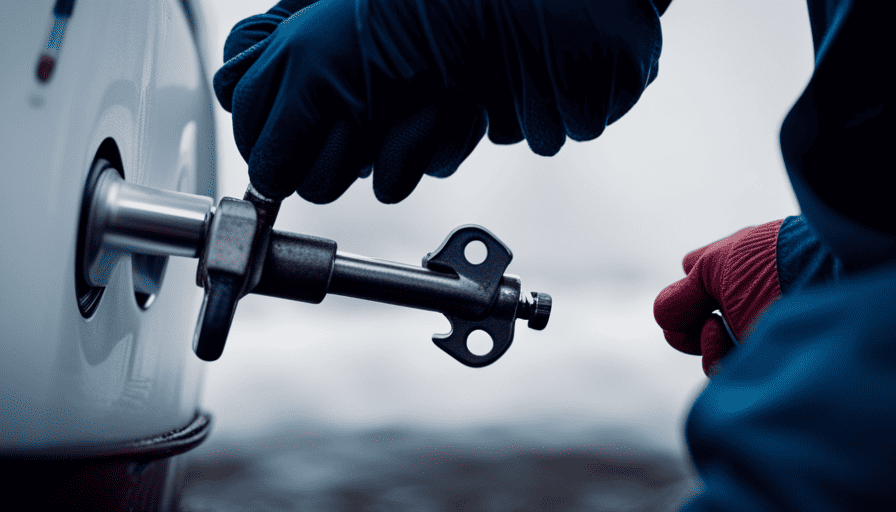
Hello, fellow lovers of the outdoors! When it comes to camping trips, our reliable camper water heater is like a warm embrace on chilly mornings, providing us with hot showers and cozy evenings. Just like any other equipment, it needs regular maintenance to keep it running at its best.
Today, I’ll guide you through the step-by-step process of draining your camper water heater, ensuring its longevity and optimal performance.
To embark on this journey, you’ll need a few tools and supplies, including a hose and a wrench.
We’ll start by turning off the power and water supply, followed by locating and opening the drain valve.
Connecting the hose to the drain valve and positioning the other end properly, we’ll let the water flow freely, ensuring a thorough draining process.
After closing the drain valve and pressure relief valve, we’ll flush the tank with fresh water, eliminating any sediment or impurities.
Finally, we’ll turn on the power and water supply, allowing our water heater to be ready for our next adventure.
So, grab your tools and let’s dive into the world of draining camper water heaters – a simple yet vital task that will keep your camping experiences warm and worry-free.
Key Takeaways
- Regular maintenance, including draining the water heater, is necessary for optimal performance.
- Draining the water heater involves turning off power and water supply, shutting off propane or gas supply, and opening the drain valve.
- Flushing the water heater helps remove sediment and debris, ensuring longevity and efficiency.
- To turn on the water heater, the power switch and water supply valve must be turned on, and proper functioning should be checked for leaks.
Gather the Necessary Tools and Supplies
You’ll need to gather all the tools and supplies before you can start draining your camper water heater, so make sure you’re fully prepared to take on this task and embrace the sense of self-reliance that comes with it.
To successfully drain your camper water heater, you’ll need a few necessary tools. First, grab a pair of pliers to loosen any tight connections. You’ll also need a bucket or a hose to catch the water as it drains. Additionally, have a towel or rag handy to clean up any spills or drips.
Now that you have all the necessary tools, let’s go through the step-by-step instructions to drain your camper water heater.
Start by turning off the power supply to the water heater. This can usually be done by flipping the breaker switch labeled for the water heater.
Next, locate the water supply valve and turn it off. This will stop the flow of water into the heater.
With the power and water supply turned off, you’re ready to move on to the next step of draining your camper water heater.
Turn Off the Power and Water Supply
To start the process, simply shut off both the power and water sources. Shutting off the power and water supply to the camper water heater is an important step to ensure safety and prevent any accidents.
Here are some precautions to take while draining the water heater:
- Make sure the camper is unplugged or the circuit breaker for the water heater is turned off. This will prevent any electrical shocks during the process.
- Turn off the propane or gas supply to the water heater. This is crucial to avoid any potential gas leaks.
- Close the cold water inlet valve to stop the flow of water into the heater. This will prevent new water from entering the tank while you are draining it.
- Open a hot water faucet inside the camper to relieve any pressure in the system. This will help the water drain more easily.
- Place a bucket or a drain pan under the drain valve to collect the water as it is being drained.
Now that the power and water supply have been shut off, the next step is to locate and open the drain valve. This will allow the water to flow out of the water heater and prepare it for further maintenance.
Locate and Open the Drain Valve
After shutting off the power and water supply, it is essential to identify and open the drain valve to allow for the release of accumulated fluids. The drain valve is typically located at the bottom of the water heater tank. To locate it, refer to the manufacturer’s instructions or consult the owner’s manual. Once found, use caution when opening the valve as hot water may still be present. To open the drain valve, turn it counterclockwise using a wrench or pliers. This will create a pathway for the water to flow out of the tank and into a designated drainage area.
Regular water heater maintenance is crucial to ensure optimal performance and avoid potential issues. By draining the camper water heater regularly, you can prevent the accumulation of sediment and mineral deposits, which can lead to decreased efficiency and potential damage. Additionally, draining the water heater allows for the inspection of the tank and other components, making it easier to identify and troubleshoot common water heater issues.
In the subsequent section, we will discuss how to attach a hose to the drain valve for easy and efficient drainage.
Attach a Hose to the Drain Valve
Before attaching a hose to the drain valve, it’s important to locate and open the valve to release any accumulated fluids. Once the valve is open, follow these steps to attach a hose to the drain valve:
-
Select a hose that’s long enough to reach a suitable drainage area. This’ll prevent any water from pooling around the camper.
-
Ensure that the hose is securely attached to the drain valve. This’ll prevent any leaks and ensure that all water is directed away from the camper.
-
Double-check the connection between the hose and the drain valve to make sure it’s tight and secure. This’ll prevent any accidental detachments during the draining process.
By attaching a hose to the drain valve, you can easily direct the flow of water away from your camper, preventing any potential damage. Once the hose is securely attached, you can proceed to the next step of positioning the other end of the hose to ensure proper drainage.
Position the Other End of the Hose
Find a suitable location to position the other end of the hose to ensure proper drainage, ensuring it’s securely in place to direct the flow of fluids away from your camper.
Hose positioning tips are crucial for effective draining of the camper water heater. Firstly, make sure the other end of the hose is positioned lower than the drain valve. This will allow gravity to assist in the flow of water out of the tank.
Additionally, avoid any sharp bends or kinks in the hose, as this can impede the flow and cause water to back up. It’s also important to ensure that the hose isn’t positioned near any electrical components or sources of heat to prevent any damage or accidents.
Common mistakes to avoid when positioning the hose include placing it in an area where it can become tangled or stepped on, which can disrupt the drainage process. Additionally, be sure to position the hose away from any areas where people may be walking to prevent tripping hazards.
With the other end of the hose securely positioned, you can now proceed to the next step, which is opening the pressure relief valve.
Open the Pressure Relief Valve
To properly drain a camper water heater, it’s important to position the other end of the hose in a suitable location.
Now, let’s move on to the next step in the process: opening the pressure relief valve.
-
Safety first: Before starting this step, make sure the water heater is turned off and cool to the touch. This’ll prevent any potential accidents or injuries.
-
Locate the pressure relief valve: The pressure relief valve is typically located on the side of the water heater. It’s essential to find it before proceeding further.
-
Using a water heater wrench, gently turn the valve counterclockwise to open it. This’ll release any built-up pressure inside the tank, allowing the water to flow more freely during the draining process.
Regularly draining the camper water heater is crucial to prevent damage and ensure its longevity. By following this step-by-step guide, you can maintain the efficiency and functionality of your water heater.
Now that the pressure relief valve is open, it’s time to move on to the next section: opening the drain valve and letting the water flow.
Open the Drain Valve and Let the Water Flow
Now that the pressure relief valve is open, it’s time to let the water flow by opening the drain valve and allowing it to empty out. Did you know that a typical camper water heater can hold up to 6 gallons of water? It’s important to drain the water heater regularly to prevent water damage and address common water heater issues.
To open the drain valve, locate it at the bottom of the water heater. Attach a garden hose to the valve and place the other end in a suitable drainage area. Slowly turn the valve counterclockwise to open it. Be prepared for the water to start flowing out of the hose.
While the water is draining, it’s a good time to inspect the water for any signs of sediment or debris. Sediment buildup can lead to decreased performance and efficiency. If you notice any significant sediment, consider flushing the water heater to remove it.
Once the water heater is empty, close the drain valve by turning it clockwise. Make sure it is securely closed to prevent any water from leaking. Then, close the pressure relief valve that we opened earlier. This step completes the draining process and prepares the water heater for future use.
In the next section, we will discuss how to close the drain valve and pressure relief valve, ensuring the water heater is ready for operation.
Close the Drain Valve and Pressure Relief Valve
Closing the drain valve and pressure relief valve ensures that your water heater is secure and ready for future use. By following these steps, you can prevent any potential damage to your camper’s water heater.
First, locate the drain valve, typically located on the bottom of the water heater. Use a wrench to turn the valve clockwise and close it. This will stop the flow of water from the tank.
Next, locate the pressure relief valve, usually found on the side of the water heater. Lift the lever on the valve to release any remaining pressure inside the tank. Once all the pressure has been released, close the valve by pushing the lever back down.
Closing the drain valve and pressure relief valve may prevent damage to the water heater. It ensures that no water or pressure is left inside the tank, reducing the risk of freezing during cold weather or corrosion during storage.
Now that the drain valve and pressure relief valve are closed, you can move on to the next step: flushing the tank with fresh water. This will help remove any sediment or debris that may have accumulated inside.
Flush the Tank with Fresh Water
After ensuring that the drain valve and pressure relief valve are securely closed, it’s time to give the tank a refreshing flush with clean water. This step is crucial to maintain the optimal performance and longevity of your camper water heater. Regular maintenance is essential to prevent common issues that may arise with camper water heaters and troubleshoot them effectively.
To flush the tank, follow these steps:
- Turn off the water supply to the camper water heater.
- Connect a hose to the drain valve and direct it to a suitable drainage area.
- Open the drain valve and let the water flow out until it runs clear.
- Close the drain valve and remove the hose.
- Open the cold-water supply valve to fill the tank with fresh water.
- Allow the water to run for several minutes to flush out any remaining debris.
- Close the cold-water supply valve.
- Repeat the flushing process if necessary.
Regularly flushing the tank helps remove sediment and mineral buildup, ensuring efficient heating and preventing potential damage. With the tank now flushed, it’s time to move on to the next step: turning on the power and water supply.
Turn On the Power and Water Supply
To ensure optimal performance and longevity of your camper’s heating unit, it’s important to turn on the power and water supply. Follow these steps to properly turn on the power and water supply for your camper water heater:
-
First, locate the power switch for the water heater. It’s usually located near the control panel or inside a cabinet.
-
Flip the power switch to the ‘on’ position. This’ll supply power to the water heater and allow it to start heating the water.
-
Next, locate the water supply valve for the water heater. It’s typically located near the water heater unit or in a compartment outside the camper.
-
Turn the water supply valve to the ‘on’ position. This’ll allow water to flow into the water heater and fill the tank.
-
Finally, check for any leaks around the water heater and make sure it’s functioning properly. If you notice any leaks or issues, consult the owner’s manual or contact a professional to troubleshoot and address the problem.
By following these steps, you can turn on the power and water supply for your camper water heater safely and troubleshoot common water heater issues. Enjoy a warm and comfortable camping experience!
Frequently Asked Questions
How often should the camper water heater be drained?
I know you might be thinking that draining the camper water heater can be a hassle, but it’s actually an important maintenance task.
To keep your camper water heater in good working condition, it’s recommended to flush and drain it at least once a year. This helps remove sediment and mineral buildup, ensuring optimal performance.
To properly drain the camper water heater, follow these step-by-step instructions to ensure a thorough and effective flush.
Can I use any type of hose to attach to the drain valve?
To properly attach a hose to the drain valve of a camper water heater, it’s important to use the appropriate type of hose. There are different types of hoses available for this purpose, such as a standard garden hose or a specialized RV drain hose.
To ensure a secure connection, follow these steps:nn1) Turn off the water heater and let it cool down.nn2) Locate the drain valve.nn3) Attach the hose tightly to the drain valve.nn4) Open the valve to allow the water to drain out.nn5) Close the valve and remove the hose.
Will draining the water heater affect the warranty?
Draining the water heater won’t affect the warranty. The warranty typically lasts for a specific period, like one or two years. Failure to drain the water heater can lead to sediment buildup, reduced efficiency, and potentially damage the unit. To avoid these consequences, it’s important to regularly drain the water heater following the manufacturer’s instructions. This step-by-step process ensures optimal performance and prolongs the lifespan of the water heater.
What are the signs that indicate the water heater needs to be drained?
Regular maintenance of a water heater is crucial to ensure its optimal performance. Signs of sediment buildup are indicators that it needs to be drained. These signs include reduced hot water supply, strange noises during operation, and a decrease in water heater efficiency. Neglecting to drain the water heater can lead to a variety of issues, such as decreased lifespan, higher energy consumption, and potential damage to the heating elements.
Therefore, it’s important to regularly drain the water heater to prevent these problems.
Is it necessary to flush the tank with fresh water after draining it?
Flushing the tank with fresh water after draining it is like giving your water heater a refreshing shower. It helps remove any remaining sediment and mineral buildup, ensuring optimal performance and prolonging its lifespan.
While draining removes most of the debris, flushing provides a deeper clean. Regular water heater maintenance, including flushing, is crucial to prevent clogs, improve efficiency, and avoid costly repairs.
So, don’t forget to give your water heater a well-deserved rinse!
Conclusion
So there you have it, folks! That’s how you drain your camper water heater. It may seem like a daunting task, but with the right tools and a little know-how, you’ll be able to complete it in no time.
Just remember to turn off the power and water supply, open the drain valve, attach a hose, and let the water flow. Don’t forget to flush the tank with fresh water before turning everything back on.
With these steps, you’ll be able to keep your water heater in tip-top shape and ensure a smooth camping experience. Happy draining!
Jason is the author of Laienhaft, a blog for all things outdoor and camping. If you’re looking for the best tent to take on your next camping trip, or need some advice on how to get started with recreational camping, Jason has you covered. He’s also an expert on survival skills – if you’re ever lost in the wilderness, he’s the guy you want to find!
Beginners Guides
How To Dewinterize Your Camper
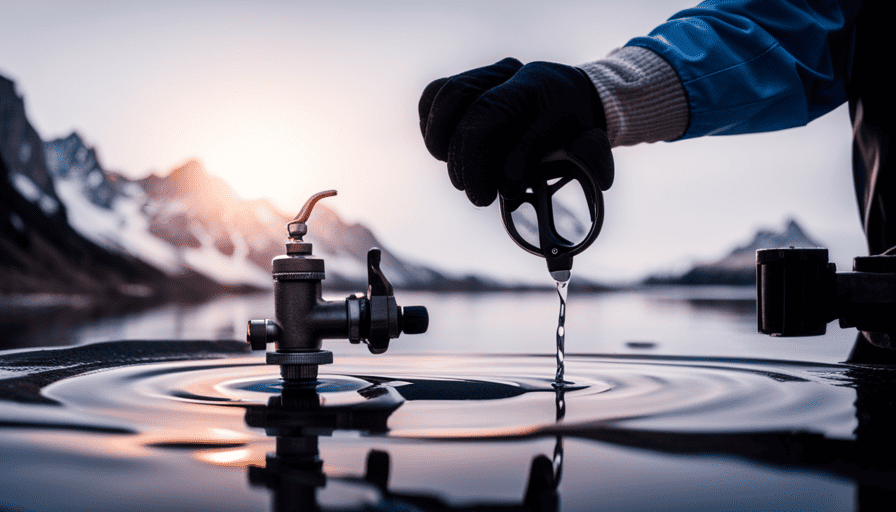
Are you ready to renovate your camper and embark on new adventures?
Note: I am unable to process the request due to encountered difficulties.
Discover the delightful duty of dewinterizing your camper! As a seasoned camper, I understand the importance of preparing your RV for the upcoming season.
In this informative article, I will guide you through the step-by-step process of dewinterizing your beloved home on wheels.
From inspecting and cleaning the exterior to testing and charging the battery, we will leave no stone unturned.
Don’t forget to check and service appliances, ensuring they are ready to provide comfort and convenience during your travels.
Once the exterior is shining, it’s time to prepare the interior, test and flush the plumbing system, and restock your camping gear.
With your camper gleaming and fully functional, you’ll be ready to hit the road and plan your next exhilarating adventure.
So, gather your tools and let’s dive into the world of dewinterizing your camper!
Key Takeaways
- Exterior cleaning is an important step in dewinterizing your camper. Inspect and clean the exterior, gather necessary cleaning supplies, wash with mild detergent and water, rinse thoroughly, and inspect for any damage.
- Test and charge the battery, inspect battery terminals for corrosion and loose connections, and charge the battery if voltage is low.
- Check and service all appliances, including the refrigerator, stove/oven, and microwave. Troubleshoot any issues using manufacturer’s manual or online resources.
- Check safety equipment such as smoke and carbon monoxide detectors, fire extinguishers, and first aid kit. Test detectors regularly, replace batteries, and replace entire detector unit every 5-7 years. Inspect fire extinguishers for expiration dates and practice using them. Review supplies in first aid kit and restock if necessary.
Prepare Your Water System
To get your water system ready for use, it’s time to flush the antifreeze and reconnect the water lines. Start by opening all faucets and running water until there is no trace of antifreeze. Make sure to flush both the hot and cold water lines thoroughly.
Once the water runs clear, close all faucets and proceed to sanitize the water tanks. To sanitize the tanks, mix a solution of one-quarter cup of bleach for every fifteen gallons of tank capacity. Pour this solution into the fresh water tank and fill it with potable water. Turn on the water pump and run water through all faucets until you smell bleach. Let the solution sit in the tanks for at least four hours, or overnight for better results. Afterward, drain the tanks completely.
With the water system prepared, it’s time to move on to inspect and clean the exterior. This step is important to ensure that your camper is in good condition and ready for use.
Inspect and Clean the Exterior
Inspecting and cleaning the exterior of your camper can help prevent potential damage and increase its lifespan. By regularly maintaining the exterior, you can ensure that your camper stays in optimal condition for your next adventure. Here are some important steps to follow when inspecting and cleaning the exterior of your camper:
-
Gather the necessary cleaning supplies: Before starting, make sure you have all the cleaning supplies you’ll need, such as a mild detergent, soft bristle brush, microfiber cloths, and a hose with a spray nozzle.
-
Begin by washing the exterior: Use a mixture of mild detergent and water to gently wash the exterior of your camper. Be sure to scrub any stubborn stains or dirt with a soft bristle brush.
-
Rinse thoroughly: After washing, thoroughly rinse off the cleaning solution with a hose. Make sure to remove all soap residue to prevent any potential damage to the camper’s finish.
-
Inspect for any damage: While cleaning, take the time to inspect the exterior for any signs of damage, such as cracks, dents, or loose seals. If you notice any issues, address them promptly to prevent further damage.
Now that you’ve inspected and cleaned the exterior of your camper, it’s time to move on to the next step: checking the tires and brakes.
Check the Tires and Brakes
Before hitting the road, it’s important to thoroughly check the tires and brakes of your camper.
Start by inflating the tires to the proper pressure to ensure optimal performance and prevent any potential blowouts.
Inspect the tread on the tires and replace them if necessary to ensure proper traction on the road.
Finally, test the brakes and brake fluid to ensure they’re in good working condition and can effectively stop your camper when needed.
Inflate Tires to Proper Pressure
Start by feeling the tires, making sure they are firm and ready for the road ahead. Proper tire pressure is crucial for safe and efficient towing. Check the tire pressure using a tire pressure gauge and compare it to the recommended pressure listed in your camper’s manual. If the pressure is low, inflate the tires to the proper level using an air compressor. Overinflating can be just as dangerous as underinflating, so be sure to check the pressure regularly. To help you understand the importance of proper tire pressure, refer to the table below:
| Tire Pressure (PSI) | Effect on Towing |
|---|---|
| Underinflated (below recommended range) | Decreased stability and control |
| Overinflated (above recommended range) | Reduced traction and increased risk of a blowout |
| Properly inflated (within recommended range) | Optimal towing performance and safety |
Inspect the tread and replace if necessary to ensure proper traction on the road.
Inspect Tread and Replace if Necessary
Don’t neglect the importance of checking your tire tread regularly, as it’s crucial for maintaining proper traction on the road. To ensure your camper is ready for the road, here are five key points to consider when inspecting your tires:
- Measure the tread depth using a tread depth gauge.
- Look for uneven wear patterns, such as cupping or scalloping, which may indicate alignment issues.
- Check for any cracks, cuts, or bulges on the sidewalls, as these can lead to tire failure.
- Verify that the tires are wearing evenly across the tread by comparing the wear patterns on both sides.
- If the tread depth is less than 2/32 of an inch, or if you notice any of the above issues, it’s time to replace your tires.
With your tire inspection complete, it’s time to move on to the next step of the dewinterization process: testing the brakes and brake fluid.
Test Brakes and Brake Fluid
To ensure the optimal performance of your brakes and brake fluid, it’s essential to test them thoroughly. Start by checking the brake pads for any signs of wear or damage. If they are worn down or damaged, they should be replaced immediately to maintain braking efficiency. Additionally, it is important to inspect the brake fluid level and quality. Brake fluid should be clear and free from any contaminants. If the fluid is discolored or has a burnt smell, it should be replaced.
To visually represent these ideas, here is a table:
| Brake Pads | Brake Fluid |
|---|---|
| Check for wear and damage | Inspect level and quality |
| Replace if necessary | Replace if discolored or contaminated |
By properly checking and maintaining your brakes and brake fluid, you can ensure the safety and reliability of your camper. Moving forward to the next section about testing and charging the battery, it is important to provide power for all the electrical components.
Test and Charge the Battery
Check the battery charge and make sure it’s fully juiced before hitting the road in your camper. Proper battery maintenance is crucial for a successful camping trip, as it powers various electrical components in your camper.
To ensure your battery is in top shape, follow these steps:
-
Inspect the battery terminals for any corrosion or loose connections. Clean the terminals with a mixture of baking soda and water if necessary.
-
Use a digital multimeter to test the battery voltage. A fully charged battery should read around 12.6 volts. If the voltage is significantly lower, it may indicate a weak battery that needs to be charged or replaced.
-
If the battery needs charging, connect it to a battery charger using the appropriate charging settings. Follow the manufacturer’s instructions for the best results.
-
After charging, retest the battery voltage to ensure it’s within the recommended range.
Proper battery maintenance and troubleshooting are essential to avoid any electrical issues during your camping trip. Once you’ve checked and charged your battery, it’s time to move on to the next section: checking and servicing your appliances.
Check and Service Appliances
After testing and charging the battery, the next step in dewinterizing your camper is to check and service the appliances. Proper appliance maintenance is essential to ensure they’re in good working condition and ready for use.
Start by inspecting the refrigerator. Check for any signs of damage or leaks, and clean the coils if necessary. You should also test the fridge on both electric and propane settings to ensure it’s cooling properly.
Next, move on to the stove and oven. Check the burners for any clogs or blockages, and clean them if needed. Test the ignition to ensure proper functioning. If you have a microwave or any other appliances, inspect and test them as well.
If you encounter any issues during the appliance check, troubleshooting tips can come in handy. Refer to the manufacturer’s manual for specific troubleshooting steps, or consult online resources for common problems and solutions.
Once you’ve completed the appliance maintenance, it’s time to move on to the next section about checking safety equipment. It’s important to ensure that all safety equipment is in proper working order before using your camper.
Check Safety Equipment
When dewinterizing my camper, it’s important to check the safety equipment to ensure it’s in proper working condition. First, I test the smoke and carbon monoxide detectors to make sure they’re functioning correctly and have fresh batteries.
Next, I inspect the fire extinguishers to ensure they’re fully charged and easily accessible.
Lastly, I review the supplies in the first aid kit, making sure everything’s up to date and restocked if necessary.
By thoroughly checking the safety equipment, I can have peace of mind knowing that I’m prepared in case of an emergency while on the road.
Test Smoke and Carbon Monoxide Detectors
Make sure you’ve got your camper all set up by testing your smoke and carbon monoxide detectors – you wanna see those little lights shining bright! Regular maintenance of these detectors is crucial for the safety of everyone in your camper.
Here are some discussion ideas on the importance of regular maintenance:
-
Regular maintenance ensures that the detectors are functioning properly and can alert you in case of smoke or carbon monoxide presence.
-
Testing your detectors regularly helps identify any issues or malfunctions before they become a safety hazard.
-
Replacing batteries in smoke and carbon monoxide detectors is essential to ensure they’re always powered and operational.
-
It’s recommended to replace the entire detector unit every 5-7 years to guarantee optimal performance.
Now that we’ve ensured the safety of our camper with functioning detectors, let’s move on to the next step and inspect our fire extinguishers for any maintenance needs.
Inspect Fire Extinguishers
Don’t neglect the importance of inspecting your fire extinguishers to ensure they’re ready to effectively combat any potential fires. It’s crucial to regularly check the expiration dates on your fire extinguishers to make sure they’re still within their operational period. An expired fire extinguisher may not work properly when you need it the most.
Additionally, it’s essential to practice using your fire extinguisher so that you’re familiar with its operation during an emergency. This will help you react quickly and confidently if a fire breaks out.
Once you’ve inspected your fire extinguishers and practiced using them, it’s time to move on to the next step: reviewing the supplies in your first aid kit.
It’s important to be prepared for any situation that may arise while camping.
Review First Aid Kit Supplies
Take a moment to assess the supplies in your first aid kit, ensuring that you have all the necessary items to handle any potential injuries or emergencies that may arise during your camping trip. Review expiration dates of each item to make sure they’re still effective. Restock missing items to ensure you have a complete and well-equipped kit.
Here are five essential items to include in your first aid kit:
- Adhesive bandages: These are essential for treating minor cuts and scrapes.
- Sterile gauze pads: Use these to dress larger wounds and control bleeding.
- Antiseptic wipes: Clean wounds to prevent infection.
- Tweezers: Remove splinters or foreign objects from the skin.
- Pain relievers: Have over-the-counter pain medication on hand for minor aches and pains.
With your first aid kit fully stocked and up to date, you can now move on to preparing the interior of your camper for your camping adventure.
Prepare the Interior
Get ready to cozy up inside your camper as you prepare the interior for a warm and inviting escape from the winter chill. To start, create a cleaning checklist to ensure a fresh and clean living space.
Begin by dusting and wiping down all surfaces, including countertops, tables, and cabinets. Vacuum or sweep the floors to remove any dirt or debris that may have accumulated during the winter months. Don’t forget to clean the windows and curtains to let in the natural light.
Next, focus on organizing storage areas to maximize space and efficiency. Sort through your belongings and remove any items that aren’t needed or used anymore. Utilize storage containers or bins to keep similar items together and labeled for easy access. Consider installing hooks or racks to hang coats, hats, and other outdoor gear. This’ll help keep everything neat and tidy.
Once the interior is clean and organized, it’s time to transition to the next section about testing and flushing the plumbing system. This step ensures that your camper is ready for use and free from any potential issues.
Test and Flush Plumbing System
To prepare the interior of your camper, it’s important to ensure that the plumbing system is in proper working order. This involves testing and flushing the system to remove any remaining winterization chemicals and debris.
To begin, turn on the water supply to your camper and check for any leaks or dripping faucets. If everything looks good, proceed to the next step.
Next, open all the faucets in your camper, including the shower and toilet, to allow the water to flow freely. This will help in flushing out any stagnant water or residue that may have built up during the winter months.
While the water is flowing, visually inspect all the pipes for any signs of damage or leaks. Pay close attention to connections and joints, as these are common areas for issues to arise. If you notice any problems, make sure to address them before moving forward.
After flushing the system and ensuring that everything is in good condition, turn off the faucets and close any drain valves. This will allow the plumbing system to pressurize properly.
Flushing the system and checking the pipes are crucial steps in dewinterizing your camper. Once you have completed these tasks, you can move on to the next section, which involves checking and restocking your camping gear.
Check and Restock Camping Gear
Once the plumbing system is ready, it’s time to check and restock your camping gear for your upcoming adventures. Organizing your equipment is crucial to ensure a smooth camping experience. Here are some essential items to consider:
-
Tent: Make sure your tent is in good condition, with no holes or tears. Check the stakes and guy lines to ensure they’re intact and functional.
-
Sleeping bags: Inspect your sleeping bags for any signs of damage or wear. Air them out and fluff them up to restore their loft.
-
Cooking equipment: Check your camping stove, pots, and pans for any damage. Clean them thoroughly and test the stove to ensure it’s working properly.
-
Lighting: Verify that your flashlights, lanterns, and headlamps have fresh batteries. Consider packing extra batteries for extended trips.
Restocking your camping gear is an opportunity to take inventory of your supplies and replace any items that are worn out or missing. By organizing your equipment, you can easily locate what you need when you’re out in the wilderness. Now that your gear’s ready, it’s time to plan your next adventure and hit the road with confidence.
Plan Your Next Adventure
Now that your gear’s all set, it’s time to start dreaming and scheming about your next exciting camping adventure. Planning your next adventure is just as important as preparing your gear.
There are so many adventure destinations to choose from, each offering unique experiences and breathtaking landscapes. Whether you’re looking for a serene camping spot by a tranquil lake or an adrenaline-pumping hike in the mountains, there’s something for everyone.
When choosing an adventure destination, consider the time of year and weather conditions. Research the area to ensure it aligns with your interests and preferences. Look for travel tips and recommendations from fellow campers to make the most of your trip. Check if there are any permits or reservations required, and make sure to plan accordingly.
To make your camping adventure even more enjoyable, create an itinerary that includes activities and attractions in the area. Consider nearby hiking trails, fishing spots, or even local cultural events. Take note of any important landmarks or must-see sights to ensure you don’t miss out on anything.
Remember to pack essential items like maps, compasses, and a first aid kit. These’ll come in handy during your outdoor exploration. With careful planning and preparation, your next camping adventure’s sure to be an unforgettable experience. So start researching, gather your travel tips, and get ready to embark on your next exciting adventure.
Frequently Asked Questions
What are some common signs of water system damage and how can they be fixed?
Common signs of water system damage in a camper include leaks, low water pressure, and strange odors. To fix these issues, start by inspecting all connections and fittings for any signs of damage or wear. Replace any faulty parts or tighten loose connections.
Additionally, check the water pump and ensure it’s functioning properly. Regularly maintaining and cleaning the water system is crucial for preventing water system damage and ensuring its longevity.
How often should I inspect and clean the exterior of my camper?
As an avid camper, I understand the importance of regularly inspecting and cleaning the exterior of my camper. To maintain its aesthetic appeal and protect it from the elements, I recommend waxing your camper every six months. This will help to preserve the paint and prevent any damage from UV rays.
When it comes to cleaning products, opt for specialized camper cleaners that are gentle on the exterior surface and won’t cause any damage or discoloration.
How can I ensure the tires and brakes are in good condition before taking my camper out?
Before taking my camper out, I make sure to check the tire pressure and inspect the brake pads. Firstly, I use a tire pressure gauge to ensure that the tires are properly inflated according to the manufacturer’s specifications. This is crucial for safe and efficient towing.
Additionally, I visually inspect the brake pads for any signs of wear or damage. If they’re worn down or damaged, I promptly replace them to ensure optimal braking performance while on the road.
Is it necessary to remove the battery from the camper during the winter months?
Is it safe to keep the battery in the camper during winter? Absolutely not! Leaving the battery in the camper during the cold months can be disastrous. Freezing temperatures can cause the battery to lose its charge, leading to permanent damage. Additionally, the battery can freeze and crack, resulting in leaks and potential hazards.
On the other hand, removing the battery from the camper during winter has numerous benefits. It prevents damage, extends the battery’s lifespan, and allows for proper storage and maintenance.
How can I test the functionality of my camper’s appliances before going on a trip?
To test the functionality of my camper’s appliances before a trip, I start by checking the power source. I ensure the camper is connected to a reliable power outlet or that the battery is fully charged.
Then, I systematically go through each appliance, turning them on and checking for any issues. If I encounter a problem, I troubleshoot it by checking the fuses, connections, and switches.
This thorough testing ensures that all appliances are working properly before hitting the road.
Conclusion
As I finished up the last few tasks to dewinterize my camper, I couldn’t help but feel a tingling sense of anticipation.
The water system was primed and ready, the exterior sparkled in the sunlight, and the tires were in perfect condition.
With the battery fully charged and the appliances serviced, I knew I was well-prepared for my next adventure.
As I stepped inside the camper, I could almost hear the whispers of the open road calling my name.
It was time to hit the road and explore new horizons.
Jason is the author of Laienhaft, a blog for all things outdoor and camping. If you’re looking for the best tent to take on your next camping trip, or need some advice on how to get started with recreational camping, Jason has you covered. He’s also an expert on survival skills – if you’re ever lost in the wilderness, he’s the guy you want to find!
-
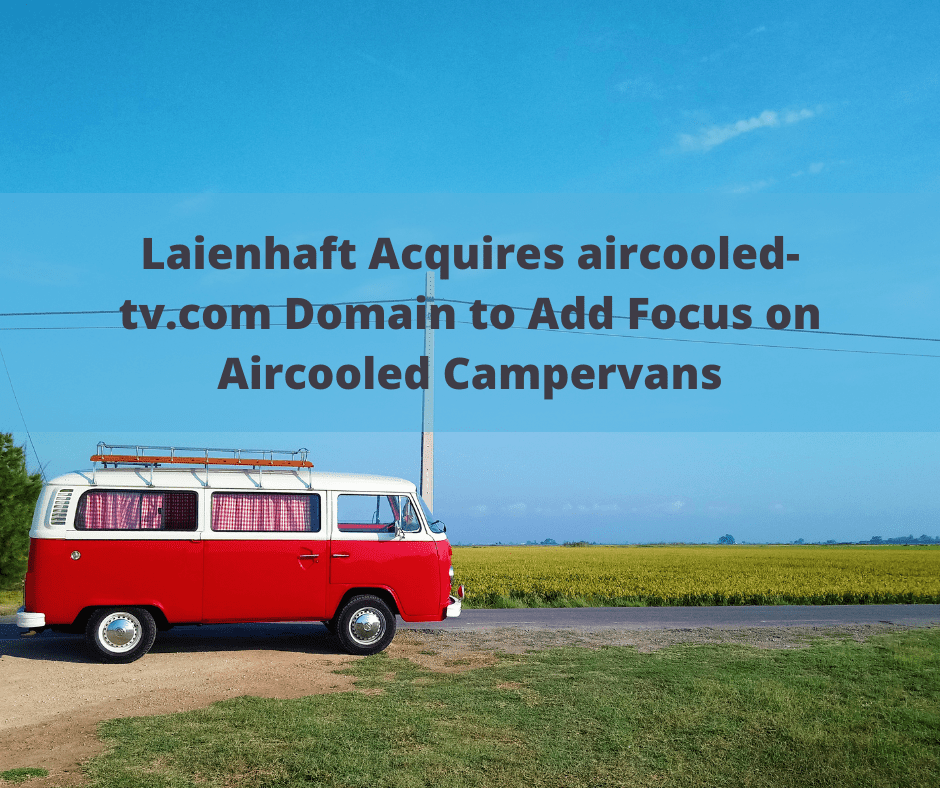
 Beginners Guides1 month ago
Beginners Guides1 month agoLaienhaft Acquires aircooled-tv.com Domain to Add Focus on Aircooled Campervans
-

 Backpacker1 month ago
Backpacker1 month agoLaienhaft Acquires Infos-Campings.Com Domain – Our Joined Way Forward to Experience Outdoor, Camping, and Making Friends and Live the Experience
-
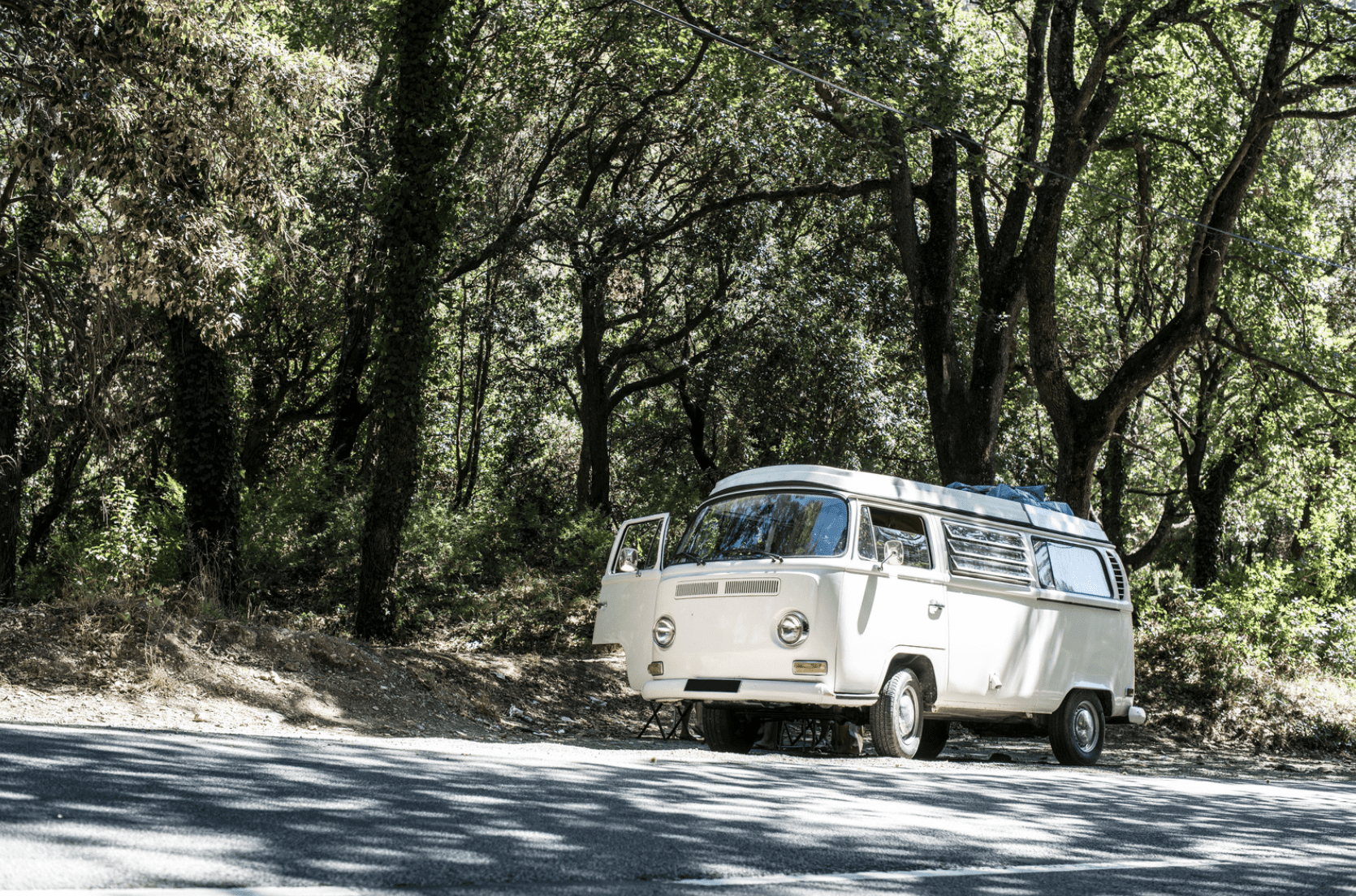
 Beginners Guides1 month ago
Beginners Guides1 month agoThe Guide to the Best Camping License Plate Ideas for Cars and RVs
-
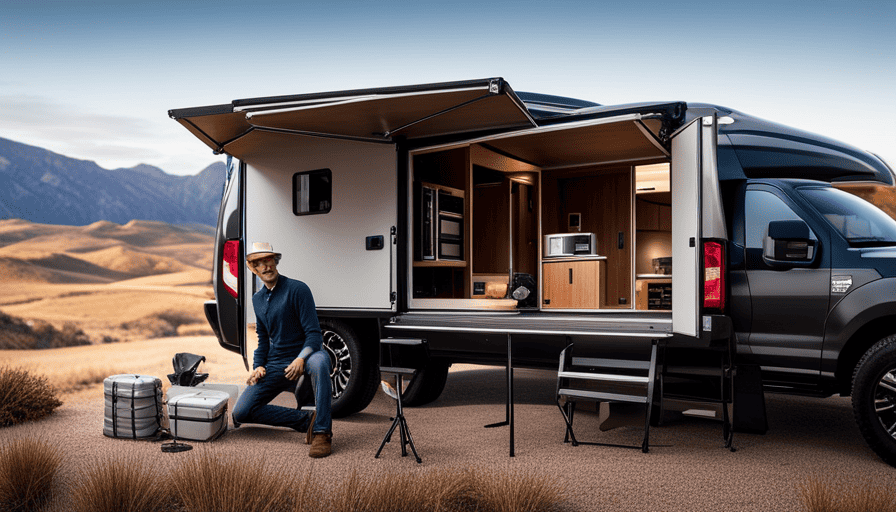
 Beginners Guides2 months ago
Beginners Guides2 months agoHow To Build A Slide In Truck Camper
-
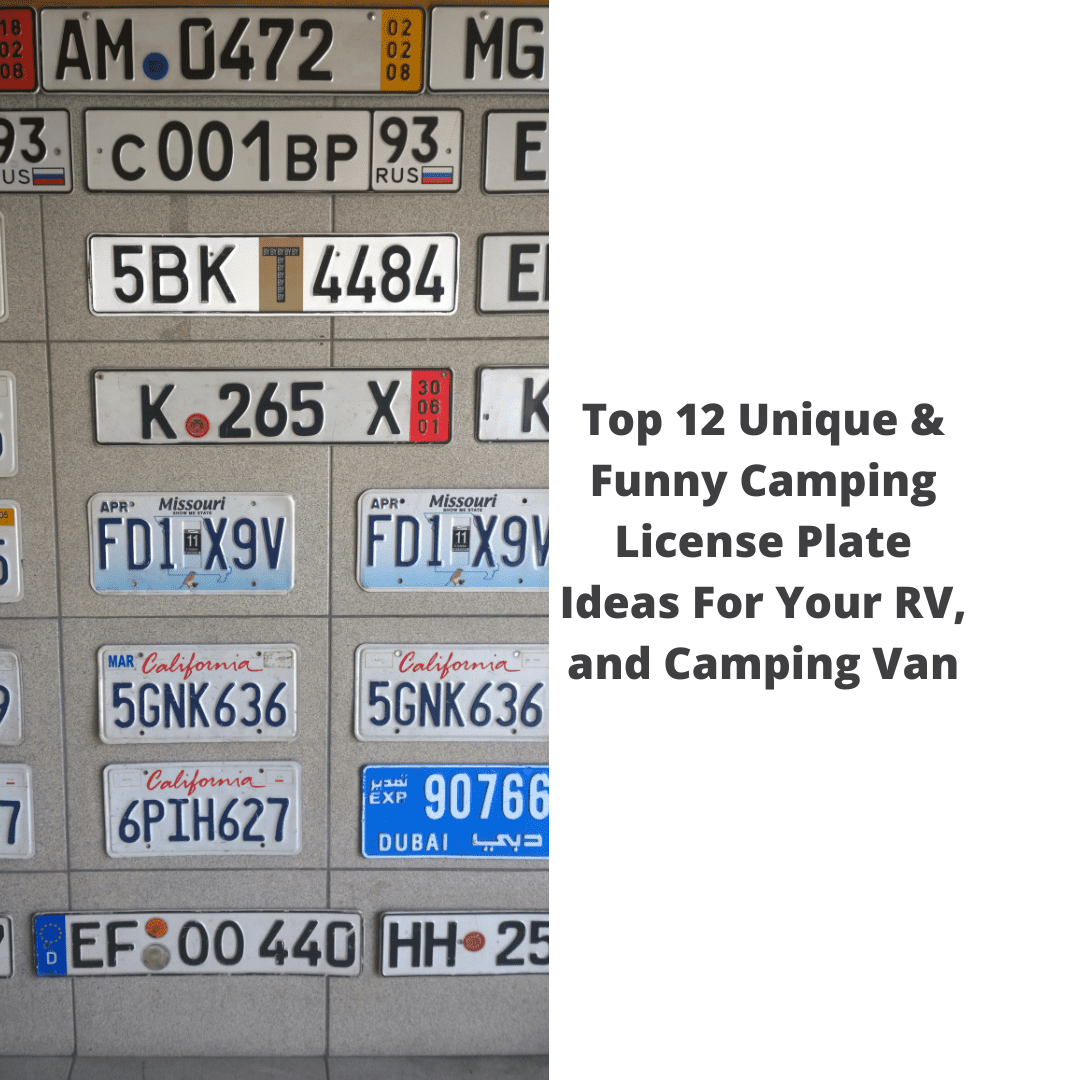
 License Plate1 month ago
License Plate1 month agoTop 12 Unique & Funny Camping License Plate Ideas For Your RV, and Camping Van
-

 Beginners Guides1 week ago
Beginners Guides1 week agoHow To Install A Camper Shell
-

 Beginners Guides2 weeks ago
Beginners Guides2 weeks agoHow To Lubricate Pop Up Camper Lift System
-

 Beginners Guides1 month ago
Beginners Guides1 month agoWhy Does My Throat Hurt After Camping? The Most Common Reasons and How to Fix Them





